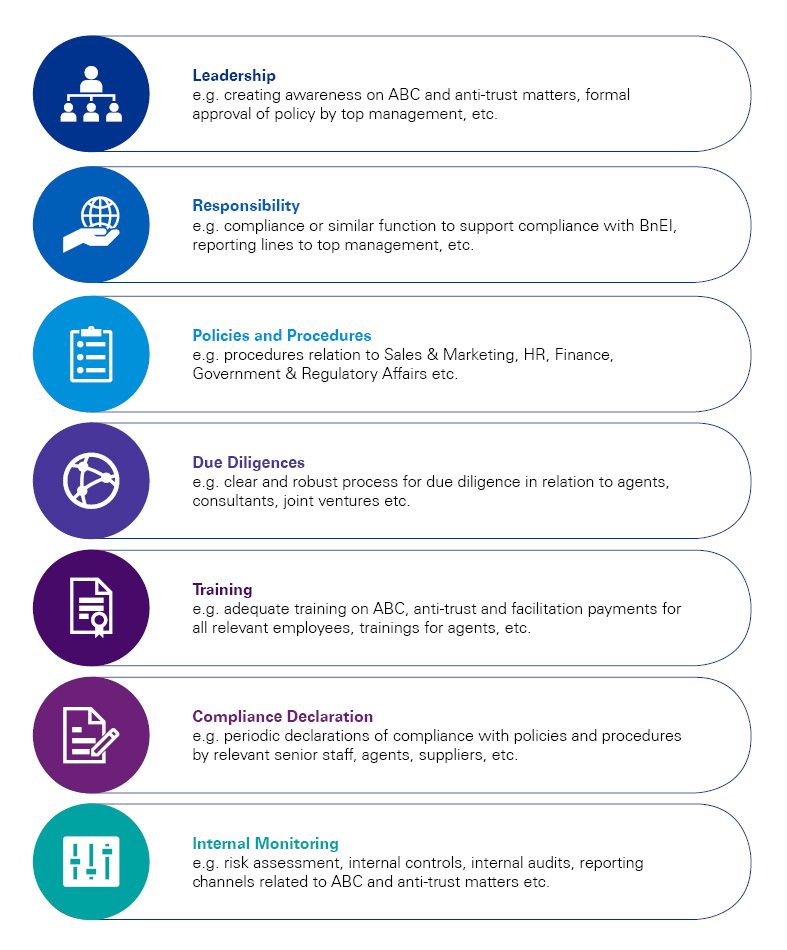Bribery or corruption scandals can severely damage a company and can have a tremendous impact on the company’s reputation as well as its financials. Scandals can influence the company’s relation with its clients, employees and possible third parties. Therefore the Banknote Ethics Initiative (BnEI) was launched in May 2013 by industry members to promote ethical business practice within the banknote sector. KPMG Forensic Belgium has been conducting the accreditation audits since the BnEI was founded.
Banknote Ethics Initative
BnEI members are required to adhere to a Code of Ethical Business Practice, which was developed together with the Institute of Business Ethics. All organizations that have signed this code, have 12 months to implement and pass the accreditation audit in order to become a BnEI member.
The efforts to prevent corruption and enhance compliance with anti-trust law within the banknote industry are welcomed and supported by 40 central banks worldwide, amongst which are the European Central Bank, Nationale Bank van België/Banque Nationale de Belgique, Deutsche Bundesbank and De Nederlandsche Bank.
Audit framework
The aforementioned code has been translated into a pragmatic framework – the BnEI audit framework - which sets out a list of good practices that all BnEI members should adopt. This to ensure the robustness of their management practices in relation to the risks of bribery, corruption and breaches of anti-trust legislation.
KPMG evaluates the performance of BnEI scheme applicants against the 50 points that are defined in the BnEI Audit Framework. Those points consider, amongst others, the involvement of the leadership of the organization, clear roles and responsibilities regarding anti-corruption, anti-bribery and anti-trust initiatives, embedded policies and procedures, good practice standards for appointing and remunerating agents and other third parties as well as training for all relevant employees.

During the accreditation audit, an in depth examination is conducted looking at four levels of evidence:
1) Existence of a policy.
2) The possibility to implement the policy via a system .
3) A system that has proven to work in practice.
4) Stakeholders testimonial that the system works in practice.
During the accreditation process KPMG will not only evaluate all points and appoint a score on a five-point scale, but will also make recommendations on how the applicant/member can improve its current policies and systems based on earlier experience and leading practices.
This centralized approach to BnEI members’ audits from KPMG Belgium help to ensure consistency, while the global reach of the KPMG network of member firms can provide essential local insights and knowledge.
BnEI membership is open to all organizations in the industry irrespective of size and experience. Companies interested in becoming a member of the BnEI can visit the BnEI website or contact KPMG for more information on the audit.
Connect with us
- Find office locations kpmg.findOfficeLocations
- kpmg.emailUs
- Social media @ KPMG kpmg.socialMedia


